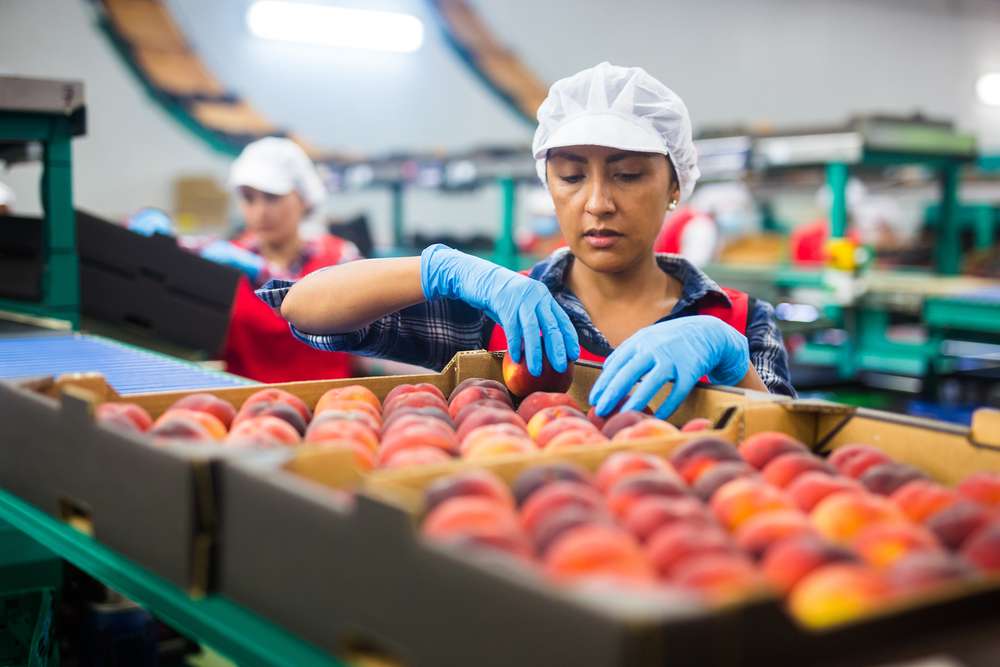Understanding Food Packing Jobs: Opportunities, Benefits, and Career Insights
Food packing jobs play a crucial role in the food industry, ensuring products are safely packaged and ready for distribution. This article explores the various aspects of food packing jobs, including their benefits, salary expectations, and notable employers in the field.

What is a Food Packing Company?
A food packing company is an organization dedicated to the processing, packaging, and often the distribution of food products. These companies range from small, specialized operations handling niche products to large-scale factories managing high volumes of diverse food items. Their primary function involves preparing food for market by ensuring it is clean, correctly portioned, sealed, labeled, and ready for transport. This process is critical for food safety, preservation, and consumer appeal, adhering to strict health and safety regulations to prevent contamination and spoilage.
These companies are integral to the global food supply chain, employing a workforce that handles everything from raw ingredient preparation to final product boxing. The environments can vary, including temperature-controlled areas for perishable goods, and often require employees to follow rigorous hygiene protocols. The work contributes directly to public health and the availability of sustenance, making it a foundational part of daily life.
Finding Local Food Packing Opportunities
Exploring food packing opportunities often involves looking at manufacturing hubs or agricultural regions where food production is concentrated. Many communities have a presence of food processing and packing facilities, which can be significant local employers. These roles are typically available across various shifts to accommodate continuous production cycles, offering flexibility for different schedules. Individuals interested in this field can often find positions through local employment agencies, online job boards, or by directly inquiring with food manufacturing plants in their area.
Working in a food packing environment generally requires attention to detail, adherence to safety guidelines, and the ability to perform repetitive tasks. While some positions may require specific certifications, many entry-level roles provide on-the-job training, making them accessible to a broad range of applicants. The focus remains on maintaining efficiency and quality throughout the packing process, from initial handling to final packaging.
Roles and Environment in a Food Packing Factory
Within a food packing factory, various roles contribute to the overall operation. Common positions include production line workers, quality control inspectors, machine operators, and packaging specialists. Production line workers are often responsible for tasks such as sorting, weighing, sealing, labeling, and boxing food items. Quality control personnel ensure that products meet specified standards and safety regulations, conducting checks at different stages of the packing process. Machine operators manage and monitor automated packing equipment, ensuring it runs efficiently and addressing any minor issues that arise.
The environment in a food packing factory is typically structured and regulated. Facilities often maintain specific temperature controls, particularly for perishable foods, which might mean working in cooler or freezer conditions. Hygiene and safety are paramount, with employees usually required to wear protective gear such as hairnets, gloves, and aprons. The work can be physically demanding, involving standing for long periods, lifting, and repetitive motions. Despite the structured nature, these roles offer a consistent work environment and contribute to a vital industry.
Food packing factories are designed for efficiency and compliance with health standards. The layout often involves assembly lines where products move through various stages of preparation and packaging. Teamwork is often emphasized to maintain smooth operations and meet production targets. Understanding these environments helps individuals prepare for the daily routines and expectations of a food packing job.
Understanding the Career Path in Food Packing
A career in food packing can offer stability and opportunities for growth within the food manufacturing sector. Entry-level positions often focus on manual tasks on the production line, but with experience and demonstrated reliability, individuals may advance to roles requiring more responsibility. This could include becoming a lead hand, supervising a section of the production line, or moving into quality assurance, where a deeper understanding of food safety protocols is essential. Further advancement might lead to positions in inventory management, logistics, or even maintenance of packing machinery, depending on acquired skills and additional training.
Many food packing companies invest in their employees through training programs, which can cover topics like advanced machinery operation, food safety certifications, and supervisory skills. This continuous learning can open doors to specialized roles or management positions. The industry’s constant need for efficient and safe food production means that skilled and dedicated workers are valuable assets, offering a pathway for long-term employment and career development.
Food packing provides a practical entry point into the broader manufacturing industry, allowing individuals to develop transferable skills in areas such as operational efficiency, teamwork, and adherence to strict protocols. These skills are valuable across various industrial settings, providing a foundation for diverse career trajectories.
General Compensation Considerations for Food Packing Roles
Compensation for food packing jobs can vary based on several factors, including the specific role, the level of experience required, the geographic location of the company, and the size of the employer. Entry-level positions typically offer hourly wages, which may increase with experience, additional responsibilities, or specialized skills. Some roles might also include benefits packages that can encompass health insurance, paid time off, and retirement plans, although these can differ significantly between companies and regions.
Overtime opportunities are sometimes available, especially during peak production seasons, which can contribute to overall earnings. Specialized roles, such as machine operation or quality control, often command higher compensation due to the technical skills or greater responsibilities involved. It is common for companies to provide detailed information about compensation and benefits during the hiring process, allowing individuals to understand the full scope of the employment offer.
Prices, rates, or cost estimates mentioned in this article are based on the latest available information but may change over time. Independent research is advised before making financial decisions.
Benefits of Working in Food Packing
Working in food packing offers several benefits, including a generally stable work environment due to the essential nature of the food industry. Employment in this sector tends to be consistent, as the demand for food products remains constant regardless of economic fluctuations. Many positions do not require extensive prior experience, making them accessible to individuals seeking entry-level employment or those looking to transition into a new field. The availability of various shifts can also provide flexibility, accommodating different personal schedules and needs.
Additionally, food packing roles often provide opportunities for skill development. Employees can gain experience in areas like operating machinery, adhering to strict quality control standards, and working effectively in a team-oriented production setting. These skills are valuable and transferable, potentially opening doors to other roles within the food industry or broader manufacturing sectors. The direct contribution to providing essential goods also offers a sense of purpose and importance in the daily work.
Conclusion
Food packing jobs are a foundational element of the global food industry, providing essential services that ensure food safety and availability. These roles offer diverse opportunities within structured factory environments, contributing to a critical supply chain. With a focus on efficiency, hygiene, and teamwork, individuals in food packing positions play a vital part in bringing food products to consumers worldwide, offering avenues for skill development and stable employment within a consistently in-demand sector.




